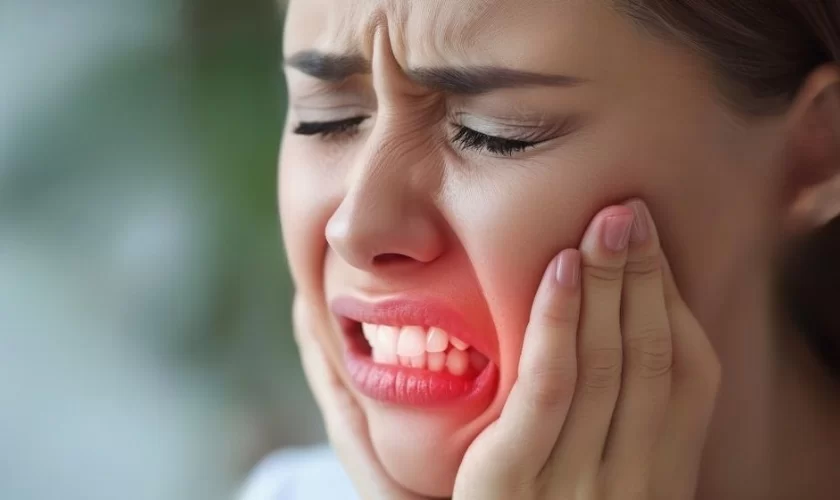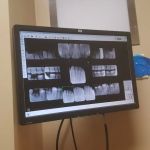
How to Manage a Dental Emergency
Dental emergencies can happen unexpectedly, and when they do, they can be frightening. Whether it’s a toothache that suddenly worsens, a chipped tooth, or even a knocked-out tooth from an accident, the pain and stress that accompany a dental emergency can be overwhelming. When I experienced my first dental emergency years ago, I wasn’t sure what to do, and the panic set in. Over time, however, I’ve learned how to manage these situations effectively. In this article, I will guide you through the steps you can take to handle a dental emergency until you’re able to reach a professional.
1. Understanding What Constitutes a Dental Emergency
The first step in managing a dental emergency is understanding what qualifies as one. Not every dental issue requires immediate attention, but some situations need prompt care to avoid further damage or more serious problems. Common dental emergencies include:
- Severe Toothache: A persistent or intense toothache can be a sign of infection, cavity, or gum disease.
- Broken or Chipped Tooth: A broken or cracked tooth can be painful and may expose the sensitive parts of your tooth.
- Knocked-out Tooth: If you lose a tooth due to an accident, time is of the essence.
- Abscess or Infection: If you notice swelling, pain, or a pimple-like bump on your gums, you may have an infection.
- Loose Fillings or Crowns: A filling or crown that comes loose can cause discomfort and might lead to further tooth decay if not addressed quickly.
It’s important to differentiate between an emergency and a non-urgent issue. If you’re unsure whether your situation qualifies as an emergency, it’s always better to call your dentist and ask for guidance.
2. Dealing with Tooth Pain and Toothaches
Toothaches are one of the most common dental emergencies. When I had a severe toothache, it felt like the pain would never stop, and I didn’t know how to manage it. The best way to handle a toothache is by alleviating the pain and addressing the root cause, if possible.
If you're experiencing tooth pain, here are a few steps to follow:
- Rinse Your Mouth: Use warm water to rinse your mouth and help clean away any food particles or debris that could be irritating the area.
- Cold Compress: Apply a cold compress to your cheek near the painful tooth. This can help reduce inflammation and numb the pain.
- Avoid Hot or Cold Foods: Stay away from foods and drinks that are too hot or too cold, as they can worsen the pain.
- Over-the-Counter Pain Relief: Taking an over-the-counter pain reliever like ibuprofen can help reduce pain and inflammation until you can get professional help.
Remember that a toothache might be a sign of an underlying issue, such as a cavity or infection, and you’ll need to see your dentist as soon as possible for a proper diagnosis and treatment.
3. How to Handle a Knocked-Out Tooth
One of the scariest dental emergencies is losing a tooth, especially if it’s due to an injury. Whether it’s from a sports accident, a fall, or another unforeseen event, a knocked-out tooth requires immediate action to maximize the chances of saving it.
If you've lost a tooth, here’s what you should do:
- Pick Up the Tooth Carefully: Hold the tooth by the crown (the top part) and avoid touching the root. Rinse it gently with water if it’s dirty, but do not scrub or remove any tissue still attached.
- Keep the Tooth Moist: If possible, place the tooth back into its socket gently and bite down to keep it in place. If you can’t do that, store the tooth in a container with milk or saliva to keep it moist until you can see a dentist.
- Seek Immediate Dental Care: Time is critical when it comes to saving a knocked-out tooth. See your dentist within 30 minutes if possible. The sooner you can get to a dental professional, the better the chances of reimplantation.
For me, I was lucky to get to the dentist quickly when I knocked out a tooth during a game. My dentist managed to reimplant it successfully, and it has been good as new. However, not all situations are the same, and you should act quickly to increase your chances of saving the tooth.
4. Managing Broken or Chipped Teeth
Breaking or chipping a tooth can be both painful and concerning, especially if it results in sharp edges or exposes the tooth’s pulp. The best course of action depends on the extent of the break or chip.
Here’s what you can do if you break or chip a tooth:
- Rinse Your Mouth: Use warm water to clean the affected area. You can also apply a cold compress to reduce swelling and pain.
- Cover Sharp Edges: If the broken tooth has sharp edges, you can cover them with dental wax or sugar-free gum to avoid cutting your tongue or gums.
- Visit Your Dentist: Even if the pain is manageable, you should schedule a visit with your dentist as soon as possible. If the break is severe, the dentist may need to repair the tooth with a filling or crown.
In my case, a chipped tooth wasn’t too painful, but I knew that ignoring it could lead to bigger problems. I made an appointment with my dentist, who was able to smooth out the chipped area and restore my tooth to its normal shape.
5. Managing an Abscess or Infection
An abscessed tooth is a painful and potentially serious condition that occurs when bacteria enter the tooth or gums. I once experienced an abscess after a tooth infection, and it was one of the most painful experiences I’ve had.
If you have an abscess, follow these steps until you can see a dentist:
- Rinse with Saltwater: Saltwater can help reduce inflammation and kill some of the bacteria around the infected area. Use warm water with a teaspoon of salt to rinse your mouth.
- Apply a Cold Compress: Applying a cold compress can help reduce pain and swelling around the abscess.
- Do Not Pop the Abscess: Avoid trying to pop the abscess yourself, as this can spread the infection and make the situation worse. You should see a dentist for proper drainage and treatment.
It’s important to get to a dentist quickly, as abscesses can lead to more severe complications if left untreated.
6. When to Seek Professional Dental Help
While you can manage many dental emergencies at home, it’s important to recognize when professional help is necessary. If you’re unable to stop bleeding, the pain is unbearable, or the injury seems severe, don’t hesitate to call a dentist immediately. In my own experience, seeing a dentist early prevented further complications and saved my teeth from permanent damage.
If you’re looking for reliable emergency dental care, consider visiting professionals at Dentistry Toothtruth who specialize in handling urgent dental issues. They can offer immediate care and guide you on how to prevent future dental emergencies.







 Sky Dental Group2.0 (54 review)
Sky Dental Group2.0 (54 review) Dr. Daniel S. Fife, DDS4.0 (31 review)
Dr. Daniel S. Fife, DDS4.0 (31 review) Wirth Dental, Duane L. Wirth DDS, David L. Wirth DDS5.0 (39 review)
Wirth Dental, Duane L. Wirth DDS, David L. Wirth DDS5.0 (39 review) Apache Dental Center4.0 (760 review)
Apache Dental Center4.0 (760 review) West Coast Dental of South Gate3.0 (495 review)
West Coast Dental of South Gate3.0 (495 review) Hillside Family Dentistry4.0 (108 review)
Hillside Family Dentistry4.0 (108 review) The Importance of Oral Health Education During Pregnancy for a Healthy Pregnancy
The Importance of Oral Health Education During Pregnancy for a Healthy Pregnancy Best Tips for Brushing Your Teeth Properly for Healthy Gums: Essential Techniques for Oral Health
Best Tips for Brushing Your Teeth Properly for Healthy Gums: Essential Techniques for Oral Health Why Skipping Dental Checkups Can Lead to Bigger Oral Health Problems
Why Skipping Dental Checkups Can Lead to Bigger Oral Health Problems Advantages of Porcelain Dental Restorations
Advantages of Porcelain Dental Restorations How Can Diabetes Cause Tooth and Gum Problems? Preventing and Managing Oral Health Issues
How Can Diabetes Cause Tooth and Gum Problems? Preventing and Managing Oral Health Issues Healthy Habits for Promoting Good Oral Health and Hygiene: Tips for a Healthy Smile
Healthy Habits for Promoting Good Oral Health and Hygiene: Tips for a Healthy Smile